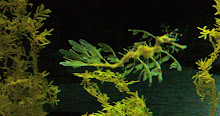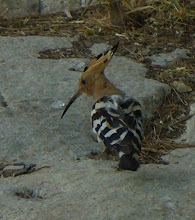Today's first link is about the nuclear incident in Fukushima Daiichi power plant in Japan. The reason I am posting this particular news piece is that it is a beautiful example of really good science communication. In Britain, the tv news has been attacked/lampooned several recently for its over-simplification of technical stories and for patronising its viewers; this applies to economic and political stories but especially to science stories. This is CNN's take on the Fukishima incident- the news reader paraphrases the expert's oppinions so perfectly it is -well- just a beautiful example of really good science communication-
http://edition.cnn.com/video/data/2.0/video/bestoftv/2011/03/11/exp.arena.nuclear.japan.quake.cnn.html

Hydrogen explosion, Fukushima Daiichi Power plant, Japan, picture from Ctv, Winnipeg (licence details [here])
You can find wikipedia's coverage of the Fukushima incidents here-
http://en.wikipedia.org/wiki/Fukushima_I_nuclear_accidents
For comparison it is interesting to look at the corresponding articles on the Three Mile Island Accident-
http://en.wikipedia.org/wiki/Three_Mile_Island_accident
the Windscale Fire*-
http://en.wikipedia.org/wiki/Windscale_fire
and the more severe Chernobyl accident-
http://en.wikipedia.org/wiki/Chernobyl_disaster

Chernobyl nuclear reactor, as seen from Pripyat, public domain image by Jason Minshull
*I should probably mention that there are one or two minor problems with the Wikipedia Windscale fire article- it states that "the fire has been described as the worst reactor accident until Three Mile Island in 1979. Epidemiological estimates put the number of additional cancers caused by the Three Mile Island accident at not more than one; only Chernobyl produced immediate casualties"- this and especially its implication that Windscale did not result in additional cancer cases is arguable. Earlier in the same article, the following sentence appears "It had previously been estimated that the incident caused 200 additional cancer cases, although this figure has recently been revised upwards to 240.". In other words, Windscale did lead to an increase in cancer incidence, Three Mile Island did not. This contradicts the idea that Windscale was less severe than Three Mile Island.

In 2001, The Scientific Illustrator Cornelia Hesse-Hornegger published a really great book looking at the effects of radiation on insect populations in various areas. It is called "Heteroptera: the beautiful and the Other, or Images of a Mutating World"
and its central argument is that even supposedly sub-clinical/ non-significant levels of radioactivity do produce noticeable increases in mutations in living creatures. The book is not scientifically rigourous- in its current state, it would certainly not stand up to scientific peer review, but that is not really its objective. As it stands, there is not enough evidence for the book's central idea, but it does raise some very interesting questions. Hesse-Honegger may well be right - I would be very interested indeed to see it thoroughly investigated. The book has other attributes, however, and not just the stunning illustrations it contains; the accounts of the Three Mile Island nuclear accident it relates are particularly interesting. Local people described feeling and intense and sudden burning sensation on their skin, like sunburn, and tasting a metallic taste in their mouths as the radiation reached them. This strange taste associated with radioactive elements is not unusual- the chemist Louis Slotin described experiencing a bitter taste in his mouth (and had a strong burning feeling in his left hand), during the nuclear accident that later killed him.
I confess to having a (possibly macabre) fascination with nuclear physics, nuclear accidents and radiation: the science behind it is really interesting, complex and subtle. Partly for this reason, it took a while before the events at Three Mile Island and Chernobyl were fully understood. In due course, we -the world public- will, no doubt, discover exactly what is occuring at this very moment in the Fukushima nuclear power plant. For the sake of Japan's people and ecosystems, we can only hope that the plant's current problems are safely resolved.









No comments:
Post a Comment